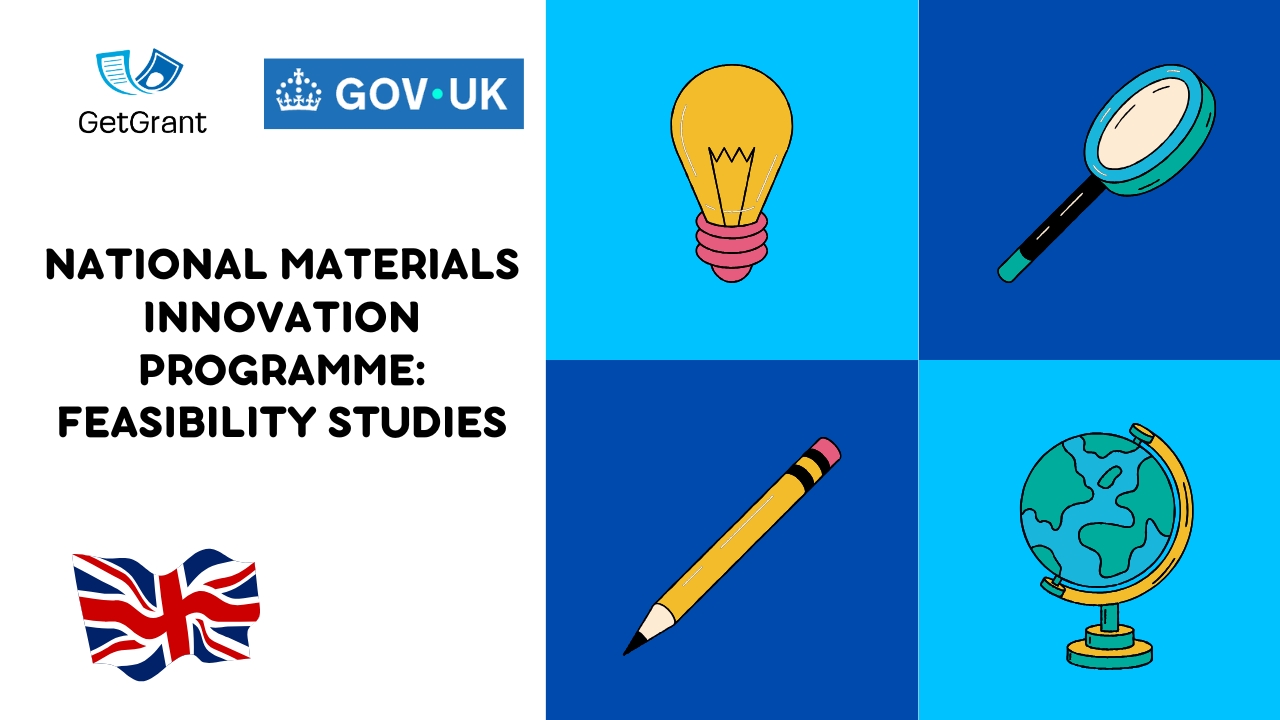Innovate UK has launched a new competition under the National Materials Innovation Programme to accelerate the translation of advanced materials toward industrial adoption. The programme supports early-stage feasibility studies that help teams validate the potential of their material innovations in real-world applications. It focuses on seven strategic themes that reflect the UK’s priorities in advanced manufacturing, sustainability and high-growth industries.
Programme Overview
The competition offers £50,000 to £100,000 for short, focused feasibility projects. These studies help organisations test market potential, identify barriers to adoption and refine their technology for future commercial deployment. Innovate UK aims to strengthen the UK’s position in material R&D by supporting ideas that can move quickly from laboratory concepts to industry-ready solutions. The programme follows the Advanced Manufacturing Sector Plan and encourages broad national participation.
Eligible Themes
Projects must apply under one of seven themes. Each theme targets a specific technological need or emerging market opportunity:
Net zero energy solutions: new battery chemistries, large-scale electrochemical systems, hydrogen technologies, heat storage, advanced nuclear fuels and materials that boost renewable energy efficiency.
Future healthcare: biocompatible materials, long-term implantable solutions, smart bioelectronic systems and materials that improve in vivo sensing and diagnostics.
Structural innovations: low-carbon construction materials, improved composites, new metallic systems, advanced ceramics and solutions that enhance durability or recyclability.
Advanced surface technologies: improved coatings, tribological solutions, and materials designed for extreme thermal or radiation environments.
Next-generation electronics: wide-bandgap materials, quantum technologies, advanced communications, sensing and photonics.
Consumer products and polymers: sustainable plastics, biodegradable packaging, specialist elastomers and materials supporting circular-economy models.
Metamaterials and metasurfaces: engineered structures that deliver new electromagnetic, acoustic, thermal or mechanical functions for telecommunications, healthcare, energy or sensing.
Each proposal must clearly identify the sector it targets, explain how the material innovation fits market needs and demonstrate the path toward industrial use. Teams also need to show how their innovation supports the UK’s net-zero objectives by improving efficiency, reducing emissions or enabling sustainable production.
Who Can Apply for National Materials Innovation
Only UK-registered businesses can lead applications. Projects may work alone or include partners such as universities, research organisations, charities or public-sector bodies. All partners must carry out the project work in the UK, and each project must include a letter of support from a potential end user representing one of the eight IS-8 priority sectors. Subcontractors may cover up to 30% of project costs and can be UK-based or international if fully justified.
Project Requirements
Projects must request between £50,000 and £100,000, begin by 1 May 2026 and conclude by 31 January 2027. The competition evaluates proposals competitively, and high-scoring applications are not guaranteed funding due to the overall budget limit. Innovate UK uses a portfolio approach to support a balanced mix of technologies, sectors and regions.
Additional Considerations
Applicants must follow UKRI rules on research ethics, sanctions compliance and the responsible use of animals, if applicable. They must also show a credible exploitation plan to ensure that results can be commercialised in or from the UK. Non-funded partners may participate but must cover their own costs.
Learn More
Official guidance, eligibility criteria and the application portal are available here:
https://www.gov.uk/government/organisations/innovate-uk
For more international funding opportunities in science, technology and industry, visit the comprehensive listings at GetGrant.
